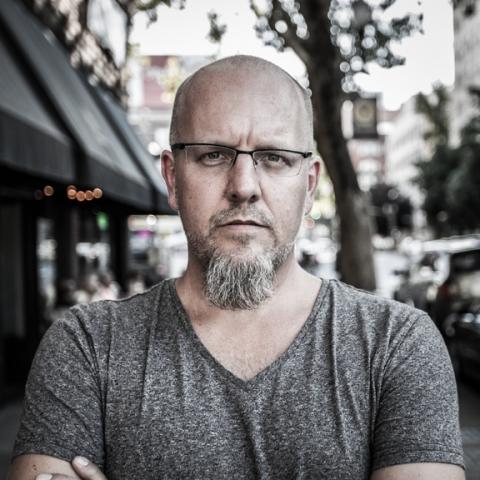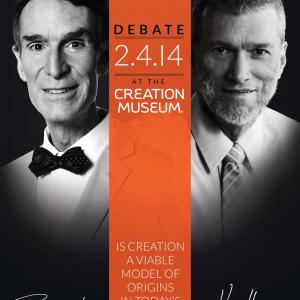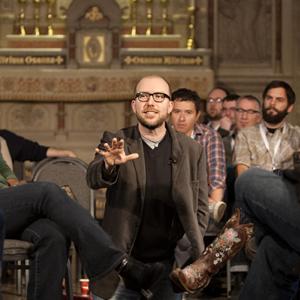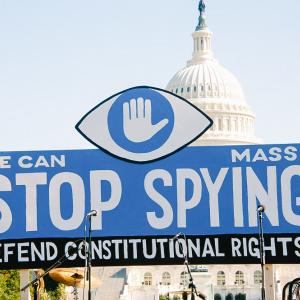
Christian Piatt is an author, blogger at Patheos and founder/cohost of the Homebrewed CultureCast podcast, where he focuses on the intersection of faith and popular culture. His latest book, “Leaving A-holiness Behind,” is available now, and his next book, “Surviving the Bible: A Devotional for the Church Year 2018,” will be available November 1, 2017.
Posts By This Author
The Trouble with Being Salt and Light
There was a time when calling someone “salt of the earth” was a compliment. It suggested a strong work ethic, moral integrity, and someone whose priorities were in proper order. Today, it seems like more of an insult than anything else.
When surveyed about what they wanted to be when they grow up, the most common response from a cohort of school-age children was “famous.” The response revealed nothing about personal passion or ambition, let alone anything about a greater need to be addressed within the larger community. It points to the fact that one of the most revered qualities in our culture is to be known. What you’re known for is less important than simply having people know who you are.
It would be easy to speak critically of a younger group of people who seem to be losing their orientation to a greater social moral compass, but this is a bellwether for where we seem to be headed. Shine brightly, get noticed and make a place for yourself.
But the thing is, the kind of light Jesus talked about is different.
Why I Don’t Celebrate Valentine’s Day

Catholic Memes, http://www.pinterest.com/pin/51861833182064084/
I’ve done the Valentine’s Day thing in the past. And with two school-age kids, I still make the annual pilgrimage to the card and candy aisles in the grocery store to buy sufficiently benign greetings for them to hand out to every kid in their class, whether they like them or not.
But my wife, Amy, and I don’t do Valentine’s Day. In fact, we don’t even do Christmas anymore, in the way the culture tells us we should, at least. We’ve stopped buying presents, cards, and other trinkets for each other on these obligatory days, opting instead to surprise each other with gifts or other gestures of affection throughout the year.
One of my biggest objections to Valentine’s Day came from a friend recently who was commenting about the coming date. She was excited, she said, because her husband “always gets me something good.” Nothing about spending time together. Nothing about love for one another. Nothing about doing anything for him. She was excited to get something cool.
I know I’m sounding a little crusty and cynical right now, and if couples choose to observe such days with the exchange of gifts or a night out, I hope they do it joyfully and without any sense of obligation. But the “Hallmark holiday” mentality in our society has swallowed the proverbial Kool-Aid when it comes to reducing love down to a materialistic, forced transaction.
Yes, Valentine’s Day is about love, but the kind of selfless, dangerous sacrificial love it recognizes is trivialized by lacy cards and chocolates. Though there’s disagreement about which priest the day venerates exactly, the legends stretch back to the Roman rule of Claudius II, some 1,750 years ago.
'Ham on Nye' Debate Doesn't Reflect Reality
Whenever I hear about someone else making a case for Young Earth Creationism in the name of Christianity, I’m embarrassed, once again, to associate myself with them. And people wonder why many of us prefer to identify as “Jesus followers” or “Spiritual but not Religious” rather than be lumped in with the Ken Hams of the world.
Duh.
The thing is, a healthy number of us who consider ourselves to be Christian embrace science. We think critically. We accept the likelihood that much we think we understand about the world, the universe, and about our faith can (and should) change as we learn new things. We understand that faith is more about questions than answers, and that the prime mover in our faith practice is to be more like Jesus in our own daily walk, rather than focusing so much on making others more like us.
The desire of a vocal minority (yes, that’s what I said, and I meant it) of Christians to cling to a notion that the entire universe is a few thousand years old, despite the clear physical evidence to the contrary, points less to a reasonable alternate view of the observable world. Rather, it points to a desperate attempt to maintain a dying voice in the cultural conversation.
Forget Swords and Plowshares: Turn Guns Into Guitars
Understanding the process of turning an implement of death and violence into a tool for creativity and imagination is one part of the strategy. In doing so, there is hope that participants in such an event will begin to reimagine their own world and how they engage it. After all, true change first begins with imagining the possibility of such transformation.
Further, Reyes hopes to challenge U.S. citizens to consider their relationships with guns, and moreover, the impact that value has on people in other countries. Again, in the NPR story, Reyes explains, “We have to be allowed to ask questions. If you are not allowed to ask questions, you are not free."
Christianity 21: Cultivating a More Generous Christian Conversation
Doug Pagitt and Tony Jones have been at this whole church leadership thing for a while now. As two of the voices at the forefront of the emerging Christianity movement, they are visionaries, strategists, and hands-on practitioners who, as much or more than anyone, have wrestled with the complex and persistent question of what tomorrow’s Christian faith looks like.
For one thing, there’s an emphasis on the word movement: ideas, communities, and understanding of what it means to be engaging a Christ-inspired faith in relevant ways is forever in flux. As such, certain contemporary iterations of the Christian tribe have been criticized for being ill defined or for too easily accommodating cultural trends.
But if Christianity is being true to the one from whom its name is borrowed, it will undoubtedly be countercultural. Any practice that has at it’s core mantras like “it’s not all about you,” or “community need trumps personal gain” will find a skeptical audience in popular culture. Jones and Pagitt are far less interested in offering church leaders a novel attraction gimmick to fill their struggling churches. Rather, they are focused on helping visionaries, activists, and theologians discern what it means to be a follower of Jesus in the 21st century.
That’s why they created the Christianity 21 Conference, part of what Pagitt describes as the Generous Christianity Movement.
Is Wealth a Sin?
A recent report by OXFAM offered some sobering data about both the concentration and flow of wealth in the world today. A few key points, also summarized by a new business article on The Atlantic website , include:
- The richest 85 people in the world control as much wealth as the poorest 3,000,000,000 people;
- Nineteen out of 20 “G20” countries are experiencing growing income inequality between rich and poor;
- In the United States in particular, 95 percent of the post-financial-crisis capital growth has been amassed by the richest 1 percent of Americans;
- While domestic income inequality continues to grow, the income tax rates for wealthiest Americans have steadily dropped.
My first reaction to seemingly immoral concentrations of wealth, and the systems that enable it, is anger and a compulsion to call them out, to change them and to distribute the world’s treasures evenly among all of God’s people.
But what if we need the insanely wealthy to realize a kingdom-inspired vision for our world?
In the Beginning (A Theopoetic)
Recently, I presented this piece at the Christianity 21 Conference in Denver, and then at South Broadway Christian Church later that same week, also in Denver. I’ve been asked by several in attendance to post what I offered, so here’s the text below. The talk was accompanied by a slide show that depicted a combination of Hubble telescope images, electron microscope images and artists/musicians. I considered making that into a video, with me narrating the text underneath, but it takes a lot of time. So let me know if this is something you have particular interest in and I’ll try to make it happen.
In the Beginning
Art Saves lives because art is at the source of all life.
It is the taproot to the dormant breath of God,
Dwelling within all of creation, waiting for invitation.
What we think of today as art is not art.
It has become another product to be consumed,
Rather than a phenomenon to be engaged,
And experience to we have to submit ourselves to,
Allow ourselves to be changed,
And in doing so, catch a fleeting glimpse of
The author, the wellspring,
The essence of what it means to be a soul draped in skin and bone.
[Poem continues after the jump.]
What Repentance for the Church Looks Like Today
I’m asked pretty often what I see for the future of organized religion, and Christianity in the West in particular. Given the fact that I am in the process of completing a book called “ postChristian ,” some people make assumptions that I am convinced it’s all going away.
Granted, Christianity has experienced precipitous decline, and the drop-off likely is far from done. Before we see any leveling-off within the institutional church, there will be many more church closures, consolidation of shrinking denominations, and an increasing number of people called to, and already working in, ministry who supplement their income with some non-ministerial side vocation.
So what do we, who still operate within the system of a declining religion, do about our situation? Some of this has little or nothing to do with anything the church has done or can do. Our increasingly distributed, decentralized, and accelerated culture has forced churches out of the center of American social life. Also, changing cultural norms have made it much more socially acceptable not to go to church.
I’ve long suggested that many of the folks filling the pews during the so-called heyday of the Church some 40 to 60 years ago were there under some duress. They went because of community pressure to do so, because their spouses made them, or because it was a great place to do business networking. But honestly, were we any better off as a faith to have our buildings full if the folks who were there didn’t really want to be there?
Why I Won't Sign a Statement of Faith
I do most of my work by contract, which means I'm usually looking for work. When the time comes for me to put my feelers out for new opportunities, I tend to look far and wide. In doing so, sometimes I come across some unexpected prospects.
A couple of years ago, I applied for an editorial position at a magazine. Things were going well until we got down to the final rounds and they placed a statement of faith before me that I was expected to sign. There was much in the document that I didn't agree with, and in general, I balk at signing anything that tries to nail down what I believe or what I claim as a Christian.
I respectfully declined to sign the document, and within the hour, they withdrew my name from consideration for the job. I was recounting this to a friend and fellow writer last night over a beer, and he shared a number of similar experiences. He tends to "get" evangelical Christian culture a bit more than I do, however, so he has found various ways to work around the points of disagreement he finds in such statements.
In one case, at a college where he was applying for undergraduate studies, he performed a line-item edit, striking out everything with which he took issue. Surprisingly, the administrators at the school accepted the revised document and never mentioned his changes.
Hell and the Love of God
I GREW UP IN THE BAPTIST CHURCH, memorizing scripture as part of our “sword drills” and arming myself with the necessary tools to convert my friends to the side of righteousness. I was taught that the Earth was 5,000 years old, that scientists fabricated the fossil record to fit their agenda, and that some people—really, most people—were going to hell.
I remember waking up, shaking in my bed from dreams of the hungry flames of hell licking at my heels. My daily decisions were increasingly governed by fear and guilt rather than by love or a sense of what was right.
Where do our contemporary ideas about hell come from? First, we have to consider what it is we’re talking about when we say “hell.” Is it effectively the same as the annihilation of the soul, when one ceases to exist, even in the spiritual sense? Is it less physical and more of a conscious torment, where we, bound by our sins, spend eternity aware only of our irreconcilable separation from God?
Blue Like Jazz author Donald Miller says, “If the religious fundamentalists are right, heaven will be hell. And almost nobody will be there.” Rob Bell, best known for his bestselling book Love Wins, stirred up a tidal wave of controversy not so much for suggesting there wasn’t a hell, but for suggesting a loving God would ensure that such a place would sit empty.
IN THE OLD TESTAMENT, the word “hell” appears 31 times. The phrase “the grave” is used 31 times, and “the pit” comes in at a distant third with three appearances. But all 65 instances of these words throughout the first 39 books of the Bible come from the same Hebrew word, Sheol.
In the Jewish tradition, Sheol is a resting place for the dead. While some believe this is the same as hell, there are indications to the contrary. In the ancient Jewish tradition, Sheol is a place of rest for both righteous and wicked, with no distinction.
Five Things That Will Shock Our Grandkids About Us
I’m a big fan of the TV show Mad Men, which takes place in the midst of the Madison Avenue advertising agencies back in the ’60s and ’70s. Sure, I enjoy the drama and the “cool factor” of Don Draper and his cavalier ad team. But for me, the most fascinating part is all of the cultural norms of the time that seem fairly shocking now, only a few decades later.
Of course, there’s all the drinking and smoking in the office, but beyond that, the way that non-Anglo employees and the women in the workplace are treated would today be grounds for a lawsuit, if not public shaming for such brazen chauvinism. The thing that’s hard to remember is that, although we see such behavior as morally offensive today, it was simply normal back then.
Rivers in the Desert: Why New Year's Day Is a Christian Holiday
Growing up in Texas, fairly close to New Orleans, I knew all about Mardi Gras. It was a big deal in the South, replete with combinations of debaucherous consumption and self-exposure. What I didn’t understand, being the good evangelical Protestant that I was at the time, was that it actually was the celebration preceding the liturgical period of Lent.
It was only once I framed the excesses of Mardi Gras with the self-discipline and austerity of Lent that it began to make much sense. Not that the gratuitous self-abuse was then justified, but at least it made more sense, given the things everyone was supposed to give up during the weeks to come.
This got me thinking about how we approach New Year’s Eve, and framing it, too, by what we expect and anticipate from New Year’s Day. Yes, the celebrations of New Year’s Eve are, in some ways, just an excuse to indulge ourselves in excessive partying, but they also stand in contrast against the hopes we hold for the following day.
Five Ways to De-Commercialize Christmas
We’ve created a Christmas monster: a grotesque assemblage of pagan, Christian and capitalist symbolism into something that resembles something we’re both attracted to and repulsed by at the same time. We’re fueled by an admixture of both guilt and greed, while the domestic economy pins its annual hopes on our propensity for spending far more than we have or want to spend.
All in the name of baby Jesus.
It seems that we have no means of escaping the vortex of materialism, partly because whoever is the first not to buy gifts is the cheap jerk who throws the whole transactional nature of gift-giving out of whack. But one Christmas, a few years back, my wife, Amy, and I had finally reached our limit. We were in the midst of our Financial Peace budget slim-down and Christmas spending was an obvious target.
Swords, Plowshares, and the 'Drone Dilemma'
I have followed, with great interest, as my friend, Ian Ebright, ran a successful Kickstarter campaign for, and then completed, his short film on American drones called “From the Sky.” It’s a sensitive and nuanced treatment of those on the receiving en of our hi-tech military aggression.
This, combined with all I’ve read at Sojourners and in Time magazine, among other places about these low-risk (to us), high-efficiency (for us) killing machines, helped solidify in my mind a fairly resolute sentiment: Drones are bad.
And then I read, with great interest, my most recent issue of Popular Science, which details the physics and engineering behind these new insect-size drone bots, which replicated insect flight for the first time in the machine world. These highly nimble and portable gadgets are already being used for everything from reconnaissance and recovery on disaster sites to pollinating crops in areas where the indigenous bee population has been decimated.
So, of course, these exciting new breakthroughs left me with only one resolute sentiment: Drones are awesome!
The NSA's Need to Know, Your Privacy, and Jesus' Path
I was encouraged by the findings of U.S. District Court Judge Richard Leon on Monday who granted an injunction to plaintiffs Larry Klayman and Charles Strange that will temporarily stop the National Security Agency from continuing their data-gathering program that mines information from our mobile phone calls.
The injunction was issued because the judge believes that Klayman and Strange likely will win their lawsuit against the federal government, claiming that the phone record collection practice is an unconstitutional violation of personal privacy.
The whole storyline is made that much more dramatic since the otherwise secret program was leaked to the public by former NSA contract Edward Snowden, who is now on the run, seeking asylum in exchange for shared intelligence. And while some perceive Snowden as a hero of individual liberty, others vilify him as an enemy of the United States, much like any other terrorist. Interestingly, people’s opinions about the NSA — and, frankly, the Obama administration and the government as a whole — diverge in similar ways.
How Financial Guru Dave Ramsey Missed the Mark
I love Dave Ramsey’s Financial Peace coursework. It put our family on stable financial footing years ago, and Amy and I never fight about financial matters any more. We find plenty of other things to fight about, but that’s a different post, I suppose.
Ramsey has come under fire recently for a list of “Rich People Habits” he posted on his blog. The list was compiled by Tom Corley at a site called RichHabitsInstitute.com, which is intended to track what people of means do differently in daily life than the rest of us (aside from brush their teeth with platinum-bristled brushes, since that one’s a given).
On the one hand, I’ll agree that observing a cohort of people you want to emulate and learning from their habits makes a lot of sense, but I can see why Ramsey and Corley have caught so much heat for comparing habits of “poor people” with those of the wealthy.
There are two problems that I see. First, though Ramsey tends to be an advocate for the poor with regard to pushing back against usury lending and the like, he draws many false correlations between the habits listed below and the fact that folks who practice them are in poverty. In fact, in a recent defense of the post, Ramsey reiterated this point, writing, “This list simply says your choices cause results. You reap what you sow.”
The other concern the list raises for me is that it appears to be blind to the inherent privilege linked to the habits, as if all people had equal access to such practices and resources. Not so, Dave. Below I’ve shared several of the 20 habits on the original list (which can be found here), followed by my thoughts on where they fall short.
Sandy Hook Anniversary Reminds Us That Love Endures
This week marks a year since the nearly incomprehensible school shootings in Newtown, Conn. Gaping holes in families, lives, and the greater community remain, as the question of why such a thing happened still lingers on everyone’s lips and in minds.
Looking back for answers sometimes only serves to deepen the wounds, rather than help heal them. The shooter demonstrated serious mental illness. He played violent video games, including one called “School Shooting.” He catalogued similar events as they emerged in the news. He holed up in his room, garbage bags on the windows, until his mother helped him buy the gun.
None of this offers us the peace we seek. What we want is an end to such terrible violence, and a relief from the lingering fear that haunts us while we know another incident is only a matter of time. As a parent of two school-age children, I was made painfully aware of the vulnerabilities in their schools as I’d drop them off, sending them, alone, into the building.
Gareth Higgins on Peace, Politics, and Our Nation's 'Cinematic States'
Lots of people like movies; Gareth Higgins loves movies. But the founding director of the Wild Goose Festival and long-time peace activist engages popular culture with a different eye than most of us. And he’s used that keen eye for deeper meaning to create his latest book.
I asked Gareth about his new book on American film, his peace work, and what it’s like considering American culture both as an insider and as a non-native. Here’s what he had to say.
There's a Difference Between Expectancy and Expectation
I always had very mixed feelings about Christmas as a kid. My dad — not a religious guy — went all out for this holiday, in the typical secular ways. He bought so many presents that it would end up being hard to make our way through the dining room, where we put the tree. We’d spend at least two weekends in November hanging lights and other swag outside, and the house resonated with Bing Crosby, Dean Marin and John Denver, all wishing us merry Christmas, over and over again.
I came to hate decorating the house. All of that time spent on the roof could have been much better used playing with my friends and, of course, I never hung the lights correctly. I’d flop them along the wrong side of the roofline, only to be sent back to make it right. And suffice it to say that, although I love the Rat Pack singers in particular, hearing any carol more than 43 times in the course of three weeks can sour even the most ardent fans.
Then there was the matter of the gifts. As I said, the piles of boxes were fairly obscene, which actually proved an embarrassment if we had other family visiting for Christmas. I was not a fan of being the center of attention, and opening my remaining presents while jealous cousins looked on made me just want to get it over and done with.
Serving Two Masters: When Church and Justice Don't Agree
Methodist minister Rev. Frank Schaefer (not to be confused with Frank Schaeffer) has come up against what some might call a conflict of interest in living out his call as a minister of the gospel. Some might even call his experience a crisis of faith, but for Schaefer and his son, Tim, the struggles they have faced in recent weeks and months have yielded beautifully unexpected blessings.
Schaefer's troubles with the larger Methodist Church go back some six years to when he performed a wedding ceremony for Tim, who is gay. Although his son realized this would present Schaefer with a dilemma (the United Methodist Church does not allow their ministers to conduct same-sex marriages), he also knew that it would hurt his father deeply not to be asked to perform the ceremony, regardless of whom he was marrying.
The wedding was performed in Mass., where same-sex marriages are legally recognized.
Though it took some time, charges were brought against Schaffer within the denomination, and he has recently had his license for ministry suspended. He is now facing an ultimatum: either he has to renounce his support for the performance of same-sex marriages or he will be defrocked within a month.

















